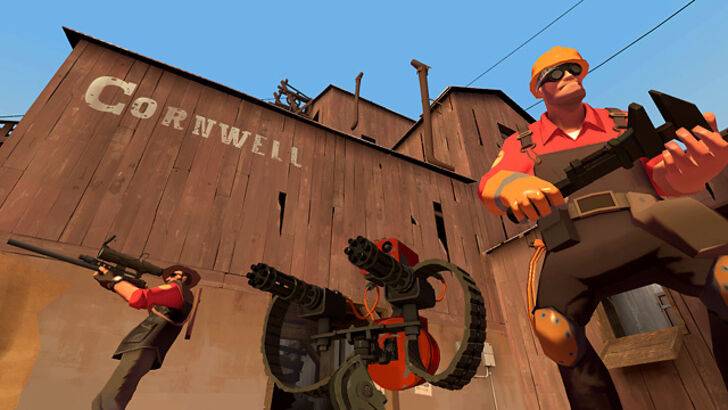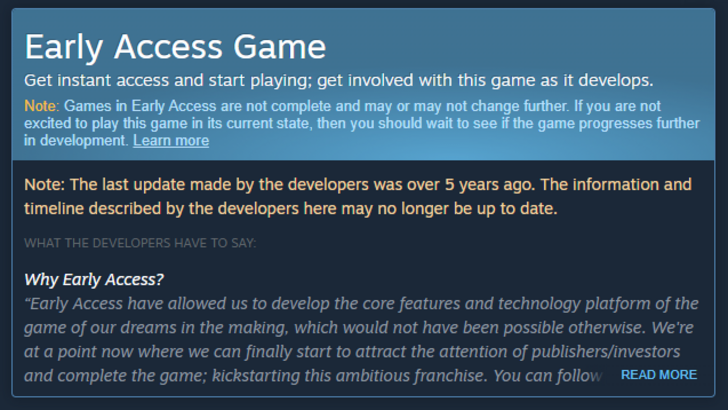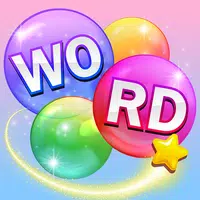Steam Bans Games with Forced Ads

Valve has established a dedicated policy page outlining rules against forced in-game advertisements. Learn more about these regulations and their impact on players.
Valve Introduces New Guidelines Against Forced Advertising in Games
Games Required to Eliminate Ad Elements

Valve has published a specific policy page clarifying its ban on games that force users to watch or interact with in-game ads to progress, or that offer rewards for viewing advertisements. This practice is frequently seen in mobile games, particularly free-to-play titles promoted across social media platforms. Such games often feature unskippable ads between levels or provide ads as a method to earn additional rewards like energy refills.
Although this policy has been part of Steamworks' terms and conditions for almost five years, it has only recently been given a standalone page for easier reference. This update may respond to the growing number of games seeking placement on the platform. SteamDB data shows a consistent yearly increase in game releases, with 2024 seeing a remarkable 18,942 titles launched.

Given these trends, Valve likely felt the need to enforce its guidelines more strictly. Steam does not include paid advertisements and therefore does not support advertisement-based revenue models for games on its platform. Any game relying on such a model must remove ad elements before launch or transition to a single-purchase paid application.
An alternative approach is adopting a free-to-play model with optional microtransactions or downloadable content (DLC). For instance, the business management simulator Good Pizza, Great Pizza successfully transitioned from mobile to Steam by converting several ad-supported features into paid DLC or progression-based unlocks.
Steam Permits Product Placement and Cross-Promotions
While disruptive ads are prohibited, product placement and cross-promotions such as bundles and sale events are allowed, provided proper licensing is secured for copyrighted content. Examples include racing games like F1 Manager displaying real sponsor logos on cars, or skateboarding games featuring authentic brand collaborations.
This policy aims to enhance the quality of PC gaming experiences by eliminating intrusive ads that disrupt immersion. Steam users can trust that games on the platform will not include forced advertisements that detract from gameplay.
Steam Now Flags Abandoned Early Access Games

Steam has discreetly implemented a new feature that labels Early Access games lacking updates for over a year. The store pages for these titles now display a notice indicating the time since the last update and cautioning that "the information and timeline provided by the developers may no longer be accurate."
As the Early Access catalog expands, these alerts help customers identify titles that may have been effectively abandoned. Although negative reviews often signal such issues, a prominent notice at the top of the page offers clearer guidance.
Players have expressed widespread approval on social media and Steam forums, praising Valve for this addition. Some users suggest that games untouched for five years or more should eventually be removed from the store entirely.
-
Get a fantastic deal on a powerful RTX 5070 Ti gaming laptop from eBay. Antonline (via eBay) is offering the Asus ROG Strix G16 with the RTX 5070 Ti for just $1,999.99, including free shipping. Beyond the capable graphics card, this laptop is poweredAuthor : Samuel Feb 08,2026
-
Sony appears ready to continue its annual tradition with a February PlayStation State of Play presentation next week.Industry insider NateTheHate, who correctly predicted Nintendo's Switch 2 reveal timing, recently hinted at a State of Play happeningAuthor : Natalie Feb 08,2026
- HoYo Fest 2025: Fresh Updates on Comeback
- Mastering Two-Handed Weapons in Elden Ring: A Guide
- Wuthering Waves: Uncover the Secrets of Whisperwind Haven's Palette
- Roblox Simulator Codes: Unlock Exclusive Rewards!
- Ultimate Guide to Shinigami Progression in Hollow Era
- Top 25 Palworld Mods to Enhance Your Game























